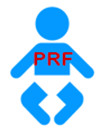Learning disabilities, or learning disorders, are an umbrella term for a wide variety of learning problems. Their brains are simply wired differently. This difference affects how they receive and process information.
Simply put, children and adults with learning disabilities see, hear, and understand things differently. This can lead to trouble with learning new information and skills, and putting them to use. The most common types of learning disabilities involve problems with reading, writing, math, reasoning, listening, and speaking.
Children with learning disabilities can, and do, succeed.
But the important thing to remember is that most kids with learning disabilities are just as smart as everyone else. They just need to be taught in ways that are tailored to their unique learning styles. By learning more about learning disabilities in general, and your child’s learning difficulties in particular, you can help pave the way for success at school and beyond.
Signs and symptoms of learning disabilities and disorders
If you suspect that your child’s learning difficulties may require special assistance, please do not delay in finding support. The sooner you move forward, the better your child’s chances for reaching his or her full potential.
Learning disabilities look very different from one child to another. One child may struggle with reading and spelling, while another loves books but can’t understand math. Still another child may have difficulty understanding what others are saying or communicating out loud. The problems are very different, but they are all learning disorders.
It’s not always easy to identify learning disabilities. Because of the wide variations, there is no single symptom or profile that you can look to as proof of a problem. However, some warning signs are more common than others at different ages. If you’re aware of what they are, you’ll be able to catch a learning disorder early and quickly take steps to get your child help.
The following checklist lists some common red flags for learning disorders. Remember that children who don’t have learning disabilities may still experience some of these difficulties at various times. The time for concern is when there is a consistent unevenness in your child’s ability to master certain skills.
Paying attention to developmental milestones can help you identify learning disorders
Paying attention to normal developmental milestones for toddlers and preschoolers is very important. Early detection of developmental differences may be an early signal of a learning disability and problems that are spotted early can be easier to correct.
A developmental lag might not be considered a symptom of a learning disability until your child is older, but if you recognize it when your child is young, you can intervene early. You know your child better than anyone else does, so if you think there is a problem, it doesn’t hurt to get an evaluation. You can also ask your pediatrician for a developmental milestones chart.
Problems with reading, writing, and math
Learning disabilities are often grouped by school-area skill set. If your child is in school, the types of learning disorders that are most conspicuous usually revolve around reading, writing, or math.
Early identification, Acceptance and One to One teaching
The diagnosis and testing process for learning disabilities
Diagnosing a learning disability is a process. It involves testing, history taking, and observation by a trained specialist. Finding a reputable referral is important. Start with your child’s school, and if they are unable to help you, ask your insurance company, doctor, or friends and family who have dealt successfully with learning disabilities.
Types of specialists who may be able to test for and diagnose learning disabilities include:
- Clinical psychologists
- School psychologists
- Child psychiatrists
- Educational psychologists
- Developmental psychologists
- Neuropsychologist
- Psychometrist
- Occupational therapist
- Speech and language therapist
A nonpublic school that specializes in treating learning disabilities might be a good alternative if the public school is not working out.
When it comes to learning disabilities, it’s not always easy to know what to do and where to find help. Turning to specialists who can pinpoint and diagnose the problem is, of course, important. You will also want to work with your child’s school to make accommodations for your child and get specialized academic help. But don’t overlook your own role. You know your child better than anyone else, so take the lead in looking into your options, learning about new treatments and services, and overseeing your child’s education.
- Learn the specifics about your child’s learning disability.
- Research treatments, services.
- Pursue treatment and services at home.
- Nurture your child’s strengths.
Learning disabilities can be extremely frustrating for children. Imagine having trouble with a skill all of your friends are tackling with ease, worrying about embarrassing yourself in front of the class, or struggling to express yourself. Things can be doubly frustrating for exceptionally bright children with learning disabilities–a scenario that’s not uncommon.
Kids with learning disabilities may have trouble expressing their feelings, calming themselves down, and reading nonverbal cues from others. This can lead to difficulty in the classroom and with their peers. The good news is that, as a parent, you can have a huge impact in these areas. Social and emotional skills are the most consistent indicators of success for all children—and that includes kids with learning disorders. They outweigh everything else, including academic skills, in predicting lifelong achievement and happiness.
Learning disabilities, and their accompanying academic challenges, can lead to low self-esteem, isolation, and behavior problems, but they don’t have to. You can counter these things by creating a strong support system for children with learning disabilities and helping them learn to express themselves, deal with frustration, and work through challenges. By focusing on your child’s growth as a person, and not just on academic achievements, you’ll help him or her learn good emotional habits that set the stage for success throughout life.
